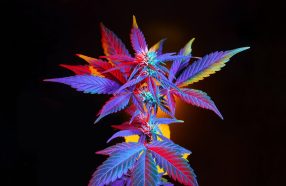Moral apparel is hot news at the present time. Any place you look in the design business that is the thing that the buzz is about. So have the makers and retailers at long last bowed to shopper pressure and got it together? The issue in responding to that question is there is no concurred definition on what moral garments really is. A few people focus on reasonable exchange issues. How were the laborers treated? What amount would they say they were paid? Others are more worried about the materials utilized and focus on sourcing natural, reused and creature free items. Still others include transport issues and spotlight on the natural expenses of transportation texture and completed articles far and wide. It is uncommon to get a solitary retail outlet that tends to every one of these issues for even a minority of their stock.
Without a doubt the significant retail ties have cottoned on to the moral attire issue and are falling over themselves trying to appear to be greener than green. Top Shop has collaborated with People Tree which underpins nearby network fabricating in lion’s share world nations and M&S have purchased up 30 percent of the worldwide Fair-trade cotton flexibly. Primark, when named the most un-moral spot to purchase garments in Britain – accomplishing a simple 2.5 out of 20 on the moral list – has gotten together with the Ethical Trading Initiative ETI and promised to change its direction.

The ETI sounds a good thought however in all actuality it is basically a methods by which an organization can give itself a modest green picture. So as to join the ETI a retailer must consent to receive a base code. The code is incredible. It covers all the things you would expect – great working conditions, a reasonable pay and so on The defect, and it’s an enormous one, is that the retailer does not need to consent to maintain that code – to pursue it. What number of organizations has signed up to look green?
In December 2006 enemy of neediness campaigners from War on Want announced the shocking conditions and pay of Bangladeshi laborers providing Primark and Tesco both ETI individuals.
In 2006 Labor behind the Label directed a significant cross examination of the greatest style brands and retailers in the high road. They essentially asked what actions you are taking to ethical clothing that the laborers causing your garments to get paid a living pay. Most of the reactions they got back were a blend of hesitation, slowing down, and genuinely straightforward reasons. A couple of organizations conceded that there was an issue, and considerably less that they had a duty to fix it.
A subsequent report in 2007 found that next to no had changed.
There is certainly not a solitary high road organization where we could state we trust you could purchase their items realizing that they have not been made in sweat shop conditions. Said Sam Maher, a representative for crusade bunch Labor behind the Label.



